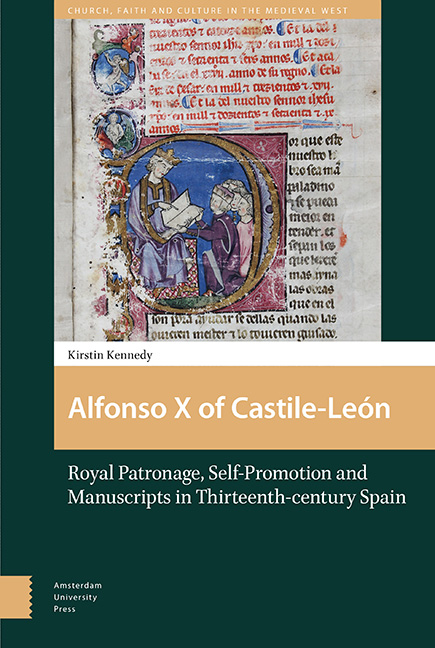 Alfonso X of Castile-León
Alfonso X of Castile-León Book contents
- Frontmatter
- Dedication
- Contents
- Acknowledgements
- List of Figures
- Abbreviations
- Introduction: ‘the king Makes a Book’
- 1 Alfonso X, his Literary Patronage, and the Verdict of Historians
- 2 Alfonso in his Texts: literary Models and Royal Authorship
- 3 Reality, Politics, and Precedent in Images of Alfonso
- 4 Codices Laid Out for a King : the Appearance and Production of Alfonsine Manuscripts
- 5 The Circulation of Alfonsine Texts: Astrological Works and Chronicles
- Concluding Remarks
- Manuscript Sources
- Index
2 - Alfonso in his Texts: literary Models and Royal Authorship
Published online by Cambridge University Press: 21 November 2020
- Frontmatter
- Dedication
- Contents
- Acknowledgements
- List of Figures
- Abbreviations
- Introduction: ‘the king Makes a Book’
- 1 Alfonso X, his Literary Patronage, and the Verdict of Historians
- 2 Alfonso in his Texts: literary Models and Royal Authorship
- 3 Reality, Politics, and Precedent in Images of Alfonso
- 4 Codices Laid Out for a King : the Appearance and Production of Alfonsine Manuscripts
- 5 The Circulation of Alfonsine Texts: Astrological Works and Chronicles
- Concluding Remarks
- Manuscript Sources
- Index
Summary
The importance of Alfonso's literary patronage as a vehicle to convey his vision of kingship necessarily means he is presented as the central figure in the execution of these works. This raises the question of the extent to which he was personally involved as author in the works he commissioned. Certainly he would have known how to read since, as the second Partida explained, this was an essential royal skill that enabled a king to protect his privacy and increase his knowledge of the laws of God and the deeds of the great in history. There is, moreover, evidence to suggest that Alfonso (or those close to him) did use some of the books he commissioned for reference and study purposes. Among the now-lost documents quoted by Seville historian Diego Ortíz de Zúñiga in his Annales is a fragment from one which refers to ‘Suer Melendez, scribe to the king, who draws up tables [of contents] and adds numbers to his books’. Suer Melendez's duties of adding reference apparatus and folio numbers to books would only have been required if the manuscripts were to be consulted for practical, scholarly, purposes. Gil de Zamora asserted that Alfonso himself had ‘composed many beautiful story-songs, [rhythmically] measured with agreeable sounds and musical proportions’ in praise of the Virgin, and his assertion has been borne out by close study of the music. Manuel Pedro Ferreira argued recently, and persuasively, that the music and lyrics to at least four cantigas were composed by Alfonso himself.
The subject-matter of the Cantigas and of some of the secular poems attributed to the king and preserved in fifteenth-century cancioneiros also seem to reflect Alfonso's inner feelings and emotional states. But other passages which, at a remove of just over seven centuries, seem to reflect the king's intimate self in fact reveal, on closer examination, the imprint of a literary exemplar. Such a debt is to be expected during a period when behind every book lurked an model for a scribe to copy. Joseph Snow has argued that a group of more than 300 cantigas written in the first person singular share so many stylistic features that they could not have been composed by the king, but instead must be the product of a team of royal collaborators who wrote according to a set of rhetorical guidelines (albeit ones established by the king himself).
- Type
- Chapter
- Information
- Alfonso X of Castile-LeónRoyal Patronage, Self-Promotion and Manuscripts in Thirteenth-century Spain, pp. 89 - 110Publisher: Amsterdam University PressPrint publication year: 2019


